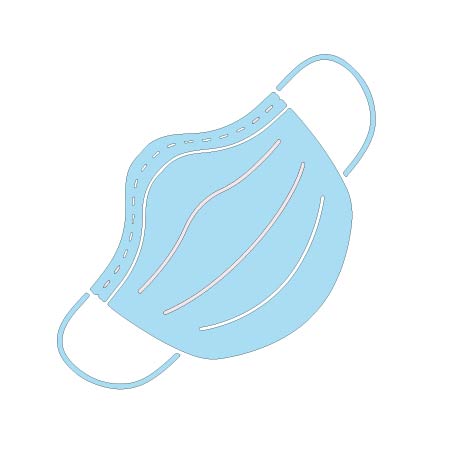Effects of COVID-19 and Pandemic on Students
After one harrowing year in isolation, the pandemic has become both a nightmare and reality for everyone around the world, but many university students have faced tight restrictions due to COVID-19. Around the world, quarantine has caused stress, fear, or frustration to those who are worried about catching the disease.
This stress can manifest itself in many different forms and varies between individuals. While no one can deny that students have had an abnormal school year, the extent to which America’s student body has been affected by the quarantine has recently been studied across various campuses. Furthermore, experts have also given their opinion on how COVID-19 may have changed the social aspects of UW Platteville and how this virus could affect students worldwide.
The article “Psychological Impacts From COVID-19 Among University Students: Risk Factors Across Seven States in the United States” compiles all its findings, showing the emotions felt by the students, and provides some insight that could help regulate some of the emotional effects related to COVID-19. Much of the data found in the research shows that the pandemic has had a negative effect on students. The authors state, “The most common changes in how students felt compared to before the pandemic were increased lack of motivation, anxiety, stress, and isolation.” The tables elaborate on this statement and show that lack of motivation (felt by 21.5% of students), anxiety (17.4%), stress (14.6%), and isolation (13.3%) were some of the most common changes students have experienced since the beginning of quarantine.
These outcomes are troublesome; students are already one of the most stressed demographics. In another study, 40% of students lost their jobs and 29% of them expect to earn less when they are 35. This information is compared to the students’ future had there not been a COVID-19 pandemic. These changes can weigh heavily on students as their already uncertain future loses even more stability. Stress and other negative feelings can diminish the quality of their schoolwork, which can also affect their future income.
With all the information provided, the article does illuminate some ways that one could reduce the “symptoms” that have affected the student population. The article states, “Both outdoor recreation and nature exposure can improve psychosocial and eudaimonic well-being,” and later continues, “Select programs that have promoted mental health … include virtual group exercise and meditation/mindfulness sessions, accountability buddies and exercise challenges.” Both of these methods provide both the student and university a way to decrease the isolation or anxiety felt by the student.
While the pandemic continues to spread among communities, many people, including Paul Erickson, Chief Communication Officer at UW-Platteville, and Anne Anderson, a PAC in the Milwaukee area, continue to work to combat the viruses and the changes that it has caused. While many students on the UW-Platteville campus are a little frustrated with the restrictions imposed on them due to the pandemic, officials on the COVID-19 operation teamwork to try and return the college back to normal.
Erickson, also a member of the COVID-19 operation team, talked with the Exponent about his experience with dealing with COVID-19. In the beginning, the emergency response team, the team that first dealt with creating COVID-19 guidelines, did not know how long that the COVID-19 pandemic would last and there was much uncertainty there. Paul Erickson stated that “one of the most important takeaways from his experience with the pandemic was the reflection it provided for the school.” This experience allowed him to reflect on how big of a role communication paid to help deal with important matters across campus. In which case, he talked about how the connection between students and teachers evolved. While the pandemic drove students away from in-person classes, nearly 93% of teachers took courses to help them create comprehensive online classes for better learning opportunities. Overall, the way that the university is trying to handle the pandemic is beneficial for all students and most university officials do have the students’ interests in mind.
Anderson has had plenty of experience with the pandemic first-hand and has dealt with many patients and administered vaccines. Her main concern is similar to the campus’ in that she knows that there are many unknowns that surround the COVID-19. Although she is unsure of how long the pandemic will last, she is sure that its effects will be semi-permanent and leave lasting effects on communities like UW-Platteville.
For instance, Anderson believes that university freshmen will eventually be able to return to in-person classes, but their studying habits may not be as developed compared to others who began with in-person classes. Unrelated to UW-Platteville she states, “local businesses being forced to close or suspend their work hours can cause distress in communities and obviously these would be more lasting effects of the pandemic.”
As students around the globe share the negative effects of the novel coronavirus, it is important to remember the strategies that help people stay calm and get through these tough times. Although it may seem like only frustration can come from this, there will always be people who work to make tough times better.




